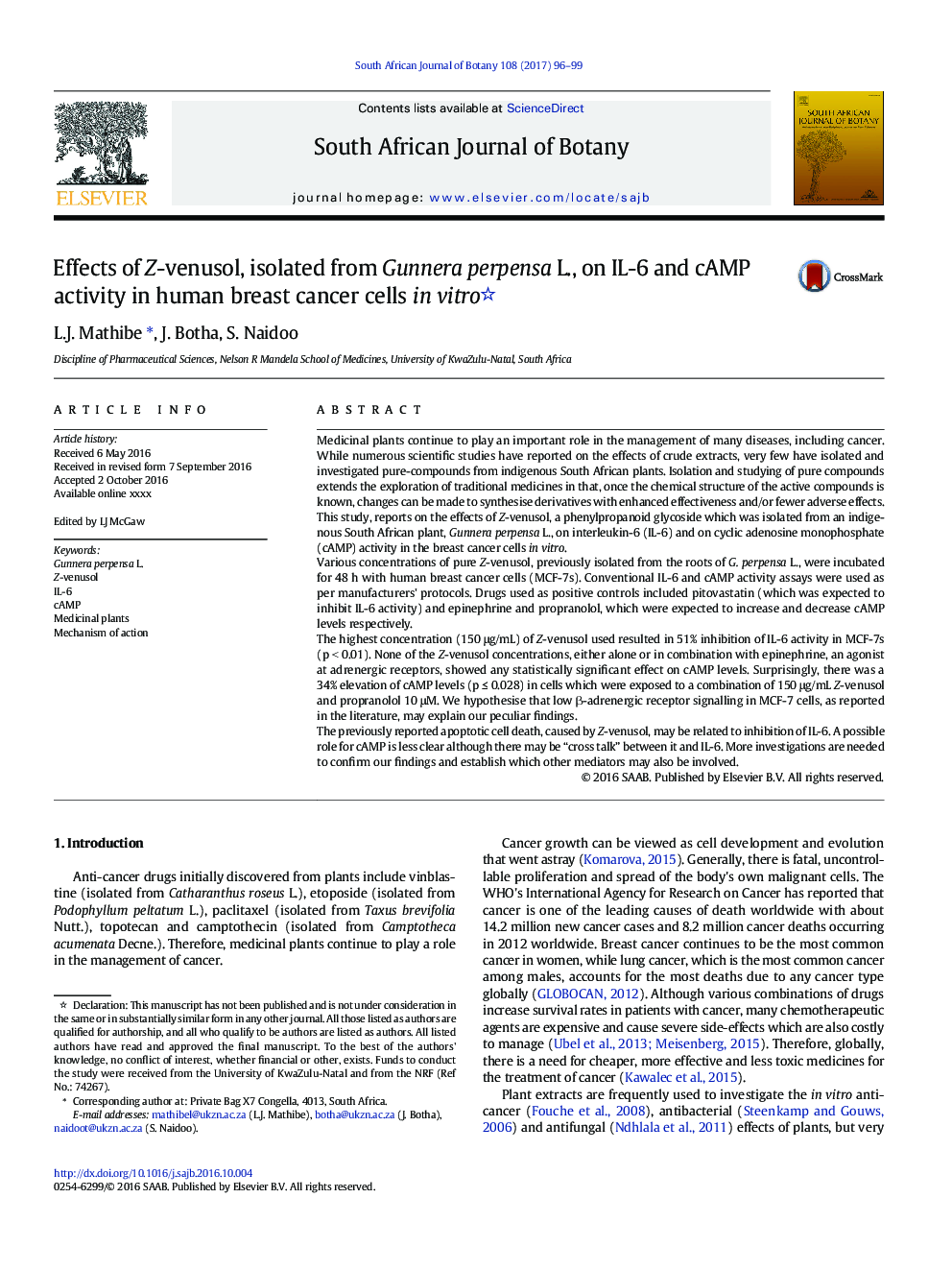| کد مقاله | کد نشریه | سال انتشار | مقاله انگلیسی | نسخه تمام متن |
|---|---|---|---|---|
| 4520072 | 1625150 | 2017 | 4 صفحه PDF | دانلود رایگان |
• Z-venusol inhibited IL-6 activity in MCF-7 cells by 51%.
• Surprisingly, Z-venusol caused 34% elevation of cAMP levels (p ≤ 0.028).
• It is possible Z-venusol causes apoptotic cell death through “cross talk” between cAMP and IL-6.
Medicinal plants continue to play an important role in the management of many diseases, including cancer. While numerous scientific studies have reported on the effects of crude extracts, very few have isolated and investigated pure-compounds from indigenous South African plants. Isolation and studying of pure compounds extends the exploration of traditional medicines in that, once the chemical structure of the active compounds is known, changes can be made to synthesise derivatives with enhanced effectiveness and/or fewer adverse effects. This study, reports on the effects of Z-venusol, a phenylpropanoid glycoside which was isolated from an indigenous South African plant, Gunnera perpensa L., on interleukin-6 (IL-6) and on cyclic adenosine monophosphate (cAMP) activity in the breast cancer cells in vitro.Various concentrations of pure Z-venusol, previously isolated from the roots of G. perpensa L., were incubated for 48 h with human breast cancer cells (MCF-7s). Conventional IL-6 and cAMP activity assays were used as per manufacturers' protocols. Drugs used as positive controls included pitovastatin (which was expected to inhibit IL-6 activity) and epinephrine and propranolol, which were expected to increase and decrease cAMP levels respectively.The highest concentration (150 μg/mL) of Z-venusol used resulted in 51% inhibition of IL-6 activity in MCF-7s (p < 0.01). None of the Z-venusol concentrations, either alone or in combination with epinephrine, an agonist at adrenergic receptors, showed any statistically significant effect on cAMP levels. Surprisingly, there was a 34% elevation of cAMP levels (p ≤ 0.028) in cells which were exposed to a combination of 150 μg/mL Z-venusol and propranolol 10 μM. We hypothesise that low β-adrenergic receptor signalling in MCF-7 cells, as reported in the literature, may explain our peculiar findings.The previously reported apoptotic cell death, caused by Z-venusol, may be related to inhibition of IL-6. A possible role for cAMP is less clear although there may be “cross talk” between it and IL-6. More investigations are needed to confirm our findings and establish which other mediators may also be involved.
Journal: South African Journal of Botany - Volume 108, January 2017, Pages 96–99
